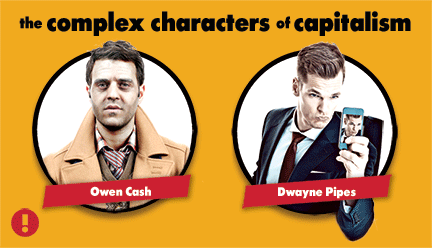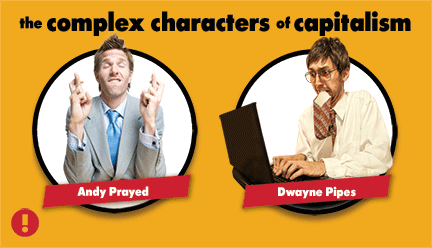The Artistic Business- (Or Business as an Art Form)
May 05, 2015 | Posted by etc

Imagine the stereotypical Artist. (I know we are not to stereotype people. But humor me for a moment.) Most people imagine a person that dresses in a certain way, talks a certain way, and hangs out in creative spaces with inspiring, smart, and creative people, right? Now picture the stereotypical entrepreneur. This person also dresses in a certain way, talks in a certain way, and hangs out in creative spaces with other inspiring, smart, and creative people. Not much difference, huh? True artists and entrepreneurs both want to make the world a better place. They both desire to make something that gets people talking, and to use their gifts and abilities to create something beautiful.
The difference between the two disciplines is trivial. Small business is indeed an art form. Since Art is hard to define, small business as an art form is also hard to peg. Is it art? Or is it not? It is a fine question to answer.
Years ago, my husband and I visited a local hotel for a celebration weekend. The proprietor was an unabashed art collector, and the hotel leaned more toward art gallery with a splash of hospitality on the side. This particular weekend, we were in the Japanese room. Center stage was a canvas that filled an entire wall, featuring a dynamic winter scene of golden trees in snowy drifts. You have, I am sure, experienced such a day, whether you noticed the beauty or not: the sun splintering across the snow, illuminating the trunks and branches of the trees in an eerie evening light. It is hard to describe what it was like to live in the presence of that painting for a weekend. We will just call it sublime. Years later, traveling again, I caught sight of another painting, and instantly recognized it as being the work of the same artist. How I knew this was his work was subliminal. But I knew that I knew. The painting shouted his name at me from across the room. I had not thought about this artist since the hotel visit. The recognizability of his style mowed me over. This time I searched him out. His name is Makoto Fujimura. Mr. Fujimura currently lives and works in New York, and his art form is a contemporary twist on an ancient Japanese art form called Nihonga. We love his style, his methodology, and his philosophy. All are completely original and totally his own.
Does everyone like Makoto Fujimura’s art? No. Maybe you do not like it. (Check out the link above.) Some people may even hate it. That is ok. He is not out to sell his paintings to everyone. But the people who love them, really love them, and are willing to pay.
All this is true for the Artistic Small Business. Not everyone will like what you have to sell. Once your business has found its sweet spot, you will have a clarity of style that can be recognized for what it is. If you are truly doing business as an art, you will have a voice all your own that is not easily duplicated by anyone. Not everyone will love it, but that is good, because it means you have finally developed a style of your very own. You will create an expectation of this style, and attract the people that are most likely to buy, because they are crazy about your work and will come back for more. The sheer originality of your work will launch a thousand conversations everywhere you go. People will search you out and seek a way to connect with you. And being the thinking entrepreneur that you are, you will have already developed a place and a way to connect with them.
We all know what Art is not. True art is never a rubber stamp reproduction of stuff that has already been made. And it is never boring. True art is an Original with a capital O, and surprisingly so. It gives expression to something larger than itself, and it makes everyone want to talk about it.
Isn’t that what you want in your Small business? All this month we will be talking about doing business as an art form. Tune in and harness the power of art for your small business.
It isn’t what you have to say. It is how you say it. That is the power of Art.














